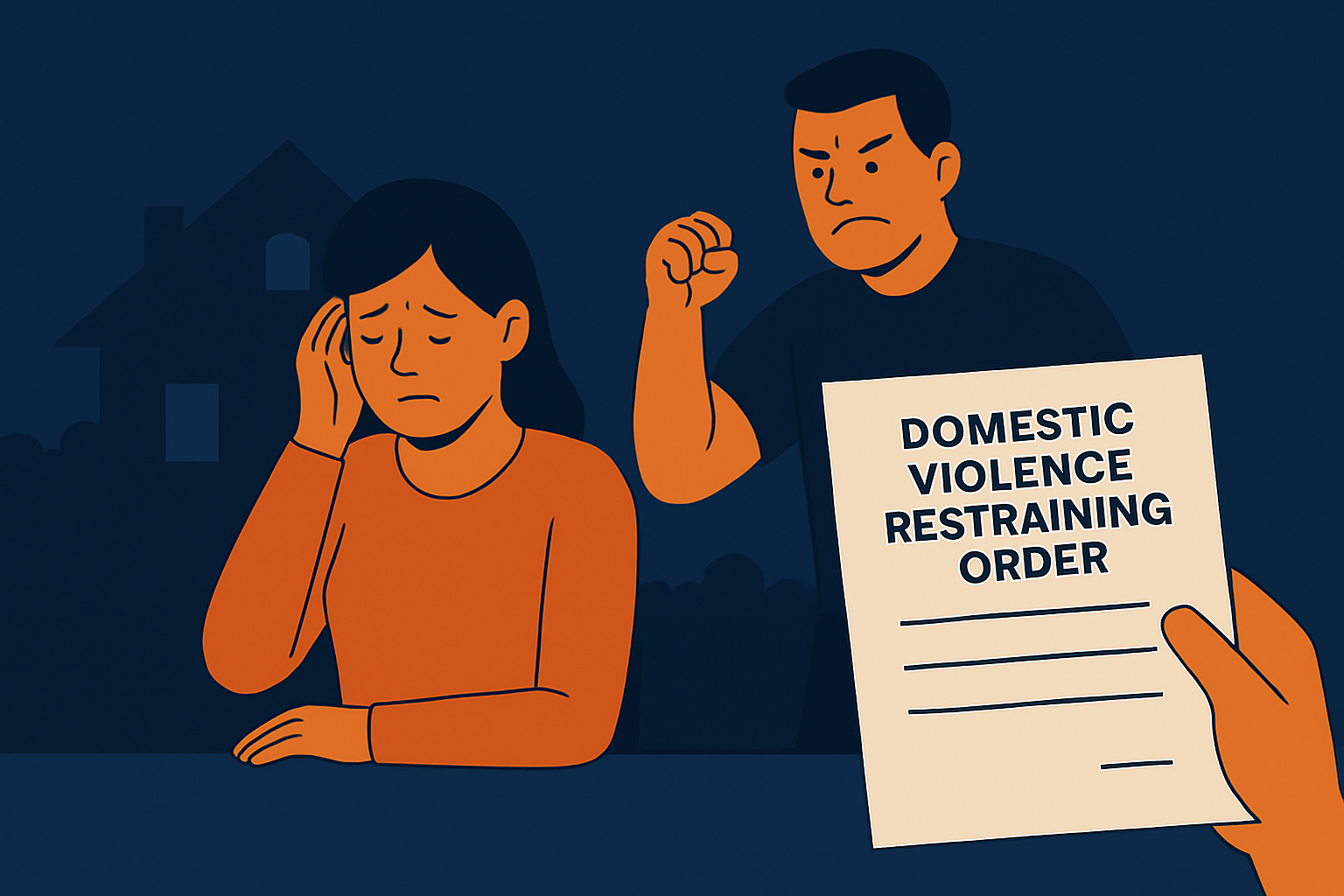
If you are experiencing abuse, threats, or harassment from a current or former partner, spouse, or close family member, a Domestic Violence Restraining Order (DVRO) may provide critical protection. California law allows individuals to seek this order quickly and confidentially. Here is what you need to know about eligibility, the filing process, and the benefits of obtaining a DVRO in Santa Maria and Santa Barbara County.
Who Qualifies for a Domestic Violence Restraining Order?
You may request a DVRO if the abusive person is:
- A current or former spouse or romantic partner
- Someone you live(d) with
- A co-parent of your child
- A parent, child, sibling, grandparent, or in-law
And they have engaged in:
- Physical abuse (hitting, pushing, restraining)
- Threats, intimidation, or coercive behavior
- Sexual assault
- Emotional or psychological abuse
- Harassment or stalking
Eligibility is determined under the Domestic Violence Prevention Act (DVPA) in California Family Code sections 6200–6409.
How to File for a DVRO in California
1. Complete the Required Forms
Begin with Form DV-100: Request for Domestic Violence Restraining Order. Depending on your situation, you may also need:
- DV-110: Temporary Restraining Order
- DV-105: Request for Child Custody and Visitation Orders
- DV-120: Response to Request for DVRO
For detailed instructions, visit the California Courts Domestic Violence Self-Help Center.
2. File the Forms
File your completed forms at the Santa Barbara Superior Court, specifically at the Santa Maria Courthouse location.
3. Request a Temporary Restraining Order (TRO)
If immediate protection is needed, you can request a TRO. A judge may grant this based on your written declaration, effective until the full court hearing (usually within 21 days).
4. Serve the Other Party
A law enforcement officer, registered process server, or another adult (not you) must personally serve the respondent. Learn more about the process here.
5. Attend the Court Hearing
Prepare to present evidence such as photographs, witness statements, police reports, or medical records. If the DVRO is granted, it may remain in effect for up to five years.
What Protection Does a DVRO Offer?
A Domestic Violence Restraining Order can:
- Prohibit any contact (phone, email, social media, in-person) with you and your children
- Order the abuser to move out of a shared residence
- Provide temporary custody and visitation arrangements for children
- Require the abuser to surrender firearms
- Prevent the abuser from approaching your home, workplace, or school
Additional Benefits:
- Peace of mind through enforceable court protection
- Custody and visitation clarity to protect children
- A legal record of domestic violence for future family law or criminal proceedings
Violating a DVRO is a criminal offense under California Penal Code §273.6.
How a DVRO Differs from a Civil Harassment Restraining Order
A Domestic Violence Restraining Order is issued in family court and involves close personal or family relationships. By contrast, a Civil Harassment Restraining Order (CHRO)—handled in civil court—applies to more distant relationships such as neighbors, roommates, coworkers, or strangers.
Only DVROs can address issues like:
- Child custody and visitation
- Spousal support
- Exclusive use of the family home
Pro Tip: Safety Planning Before You File
Consider contacting a domestic violence advocate or experienced attorney before filing. They can help you:
- Create a personalized safety plan
- Find emergency housing or shelter
- Prepare for the court hearing
You can also call the National Domestic Violence Hotline at 800-799-7233 or visit TheHotline.org for confidential support.
Domestic Violence Statistics in California
- Over 160,000 domestic violence-related calls were made to law enforcement in 2022 (CA DOJ OpenJustice Report)
- More than 80,000 DVRO petitions are filed annually statewide
- Women aged 18–34 face the highest risk of intimate partner violence
Contact Frederick Law Firm Today
If you live in Santa Maria, San Luis Obispo, or the surrounding areas and are seeking protection, the Frederick Law Firm is ready to help. Our team brings experience in family law, criminal defense, and restraining order litigation to support your safety and rights.
Meet Your Attorney
At Frederick Law Firm, you’ll work directly with William Frederick, an experienced attorney who has mastered domestic violence restraining orders, including civil harassment restraining orders as well. He has a proven track record helping Santa Maria and Santa Barbara County residents navigate these processes efficiently and effectively.
👉 Schedule a consultation now to discuss your case confidentially and take the first step toward reclaiming your peace of mind. You can also explore related articles on our blog.
FAQ: Domestic Violence Restraining Orders
Q: Can I file for a DVRO if we are still living together?
Yes. You can request that the court order the abuser to leave the home.
Q: How long can a DVRO last?
A final DVRO can last from 1 to 5 years and can be renewed if necessary.
Q: What happens if the respondent violates the DVRO?
Call law enforcement immediately. Violations can lead to arrest, jail, or fines under Penal Code §273.6.
Q: Can the court include custody orders with my DVRO?
Yes. The judge can make temporary custody and visitation orders to protect children.
Q: Do I need an attorney to file for a DVRO?
While not required, working with an attorney can significantly strengthen your case and protect your interests.
